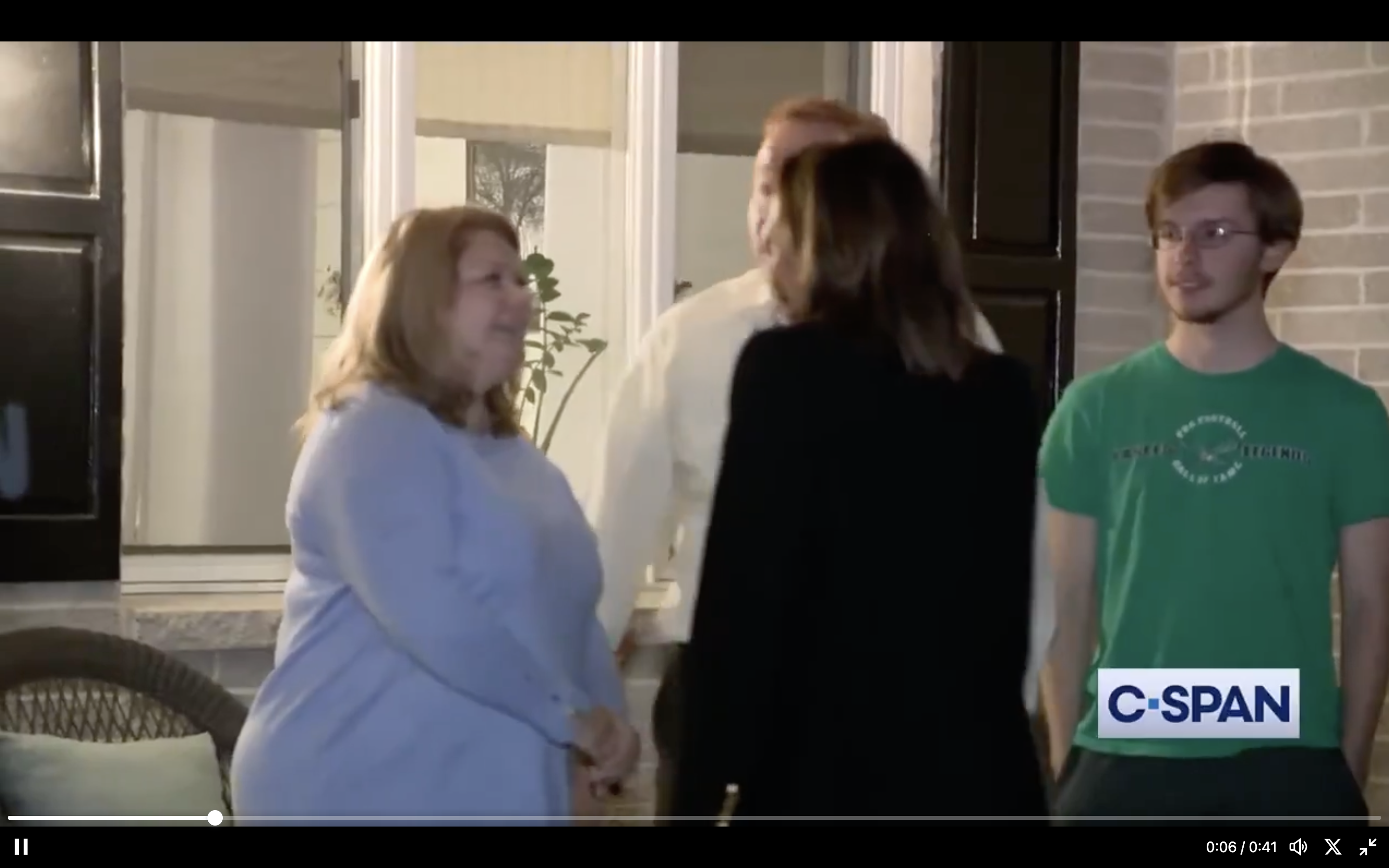In the final hours leading up to the 2024 U.S. presidential election, Vice President Kamala Harris took to the streets in Pennsylvania to engage with voters in a last-minute push for support. However, what was meant to be a heartfelt moment of connection with constituents quickly spiraled into controversy after a viral video surfaced, raising suspicions that Harris’s door-knocking campaign was not as spontaneous and genuine as it appeared.

Kamala Harris’s ‘Staged’ Door-Knocking Campaign
Kamala’s “door knocking” in Pittsburgh involved her meeting supporters outside their home, then demanding they move to the doorway so the press could capture a fake door knock.
Humiliating! pic.twitter.com/QZFcmwuMvZ
— Trump War Room (@TrumpWarRoom) November 5, 2024
Kamala Harris, the Democratic nominee for president and incumbent Vice President, shared a video on social media of herself knocking on doors in Pennsylvania. In the video, she is seen greeting a woman who emerges from her home, embracing Harris, and exchanging pleasantries. Harris captioned the video on Instagram: “Took some time today to hear from voters in Pennsylvania and ask for their support.”
While the post was intended to showcase Harris’s direct engagement with voters, the video quickly garnered attention, both positive and negative. To her supporters, it was a touching moment of the candidate connecting with everyday Americans. However, for critics, the video became the center of a viral debate about the authenticity of her campaign’s efforts.
The Viral Video: Allegations of Staging
A few days later, another video surfaced online, showing Harris interacting with a couple in Pittsburgh during her door-knocking campaign. In this clip, Harris can be seen chatting with the couple outside their home, laughing with them and jokingly saying, “I want to do a door knock!”
The resident responds enthusiastically, “Oh! You want to do a door knock?” Harris, appearing eager, replies, “Yeah! Come on, let’s knock!” After the brief exchange, the couple and their son step back into their house. The video then cuts to a door knock being heard from inside the home, followed by the door opening to reveal Harris, who begins greeting the residents as though the interaction had just begun.
This moment quickly raised suspicions. Social media users began to criticize the staged nature of the interaction, with some claiming that it was a deliberate attempt to create the illusion of a genuine door-to-door campaign for the cameras. One widely circulated caption on X (formerly Twitter) read: “Kamala’s ‘door knocking’ in Pittsburgh involved her meeting supporters outside their home, then demanding they move to the doorway so the press could capture a fake door knock.” The suggestion was that Harris had orchestrated the encounter for the sole purpose of creating a visual moment for the media, rather than actually engaging with voters.
Public Backlash: “Everything About Kamala’s Campaign is Fake”
As the video spread across social media platforms, users were quick to voice their displeasure. Many criticized Harris for staging an event that was intended to look like a spontaneous, grassroots interaction but, in their view, was nothing more than a pre-planned photo op. One user wrote, “Everything about Kamala’s campaign is fake.” Others were more specific in their criticism of the staged door knock. “Kamala’s ‘door knocking’ moment in Pittsburgh couldn’t be more staged if they tried. She actually had supporters step outside, then told them to go back to the doorway just for a press shot, creating a fake scene to look like she’s out there meeting voters.”
The viral clip sparked a wider debate about the authenticity of political campaigns in the social media age, where candidates often struggle to balance genuine engagement with carefully crafted public relations moments.
The Politics of Authenticity
This controversy touches on a larger issue in modern political campaigns—how much of a candidate’s public persona is staged, and how much is genuine. Politicians have long used media events to showcase their connection with voters, but the rise of social media has put even more pressure on campaigns to manufacture moments that look unscripted and authentic.
In this case, the viral video of Harris’s door-knocking campaign suggests a calculated attempt to create a relatable image, but some critics argue that it backfired by making the encounter feel insincere. The backlash reveals the high stakes involved in presenting a candidate as authentic, especially for someone like Kamala Harris, who has been criticized in the past for not always coming across as relatable or down-to-earth.
The Media’s Role in Shaping Perception
The incident also highlights the role that media and social platforms play in shaping public perception of political candidates. While Harris’s door-knocking video was intended to show her as an approachable, empathetic leader, the subsequent viral video painted the moment as a manufactured spectacle.
Social media platforms like X (Twitter) and Instagram have become essential tools for modern political campaigns, but they can also amplify negative reactions. In the case of the viral video, critics were able to quickly spread their message and create a narrative of dishonesty around Harris’s campaign. In contrast, positive moments from the campaign were often less widely shared, especially when they lacked the same level of controversy.
Conclusion: A Backlash Over ‘Staged’ Campaign Tactics
Kamala Harris’s door-knocking video, once intended to highlight her efforts to connect with voters, became a symbol of the challenges faced by modern political campaigns in the era of social media. The viral video and subsequent backlash raise important questions about the authenticity of political messaging and the line between genuine engagement and media manipulation.
While some may dismiss the criticism as part of the usual partisan divide, the controversy underscores the growing public demand for authenticity from political leaders. In a time when every move is scrutinized and shared instantly, campaigns must carefully navigate the delicate balance between creating moments that resonate with voters and avoiding accusations of staging or insincerity.
As the election draws nearer, the debate over Kamala Harris’s door-knocking campaign serves as a reminder that, in politics, appearances matter—sometimes more than the actual substance of a candidate’s message